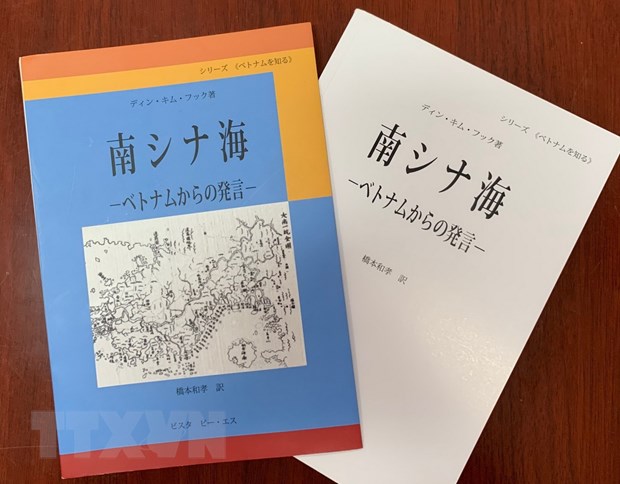[ad_1]

HÀ NỘI — A book on Việt Nam’s sea and island sovereignty has been released in Japan.
The book entitled Hoàng Sa – Trường Sa: Luận Cứ và Sự Kiện (Spratly – Paracel: Evidence and Events) was translated by Professor Kazutaka Hashimoto into Japanese from Vietnamese from the version by researcher Đinh Kim Phúc.
The book was first published by Thời Đại Publishing House in 2012. The 253-page book provides historical evidence and international legal grounds affirming Việt Nam’s sovereignty over the two archipelagoes and opposing illegal sovereignty claims.
Việt Nam has established and exercised sovereignty over the Hoàng Sa and Trường Sa archipelagoes in a peaceful and continuous manner in line with international law at least since the 17th century.
The book has four parts including East Sea disputes, affirming Vietnamese sovereignty over Hoàng Sa and Trường Sa archipelagoes and solutions to solve disputes. Its appendix includes interviews with domestic and foreign scholars.
According to Vietnamese feudal state history, thousands of sailors overcame roaring waves and storms to survey sea routes, plant milestones and erect steles affirming national territory in Hoàng Sa and Trường Sa archipelagos and mined marine resources on the orders of the ruling Nguyễn Lords.
Their missions were full of dangers and many of them never returned to land.
The two archipelagos hold strategic locations and the country’s sovereignty over them is reflected through historical documents.
The book was made via Phúc’s research and includes different sources by other researchers such as Vietnamese researcher Phạm Hoàng Quân and Hoàng Sa Centre’s documents from China, Japan, France and Spain.
In the book, researcher Phúc explains the name of the East Sea. According to United Nations Convention on the Law of the Sea, the names of the fringes are often based on the names of the largest and closest continents or bear the name of a scientist who discovered them.
The East Sea is located south of mainland China and is sometimes called the South China Sea. But the researcher stressed that it does not mean the East Sea belongs to China.
Phúc, 61 from the southern province of Vĩnh Long, graduated from the History and Geography Department at Cần Thơ University and received a master’s of history at Hà Nội National University of Education.
Professor Hashimoto was in Việt Nam teaching at the National Centre for Social, Science and Humanity’s Japan Centre. He has published several books on Japanese and Vietnamese societies.
The Japanese version of the book is being distributed by many publishing houses in Japan and will be used as a reference document by Japanese research institutes, universities and experts, helping to spread the message of Việt Nam’s maritime sovereignty. — VNS
[ad_2]
Source link
